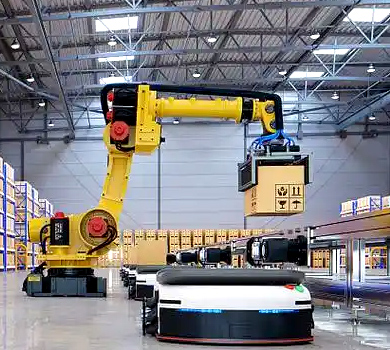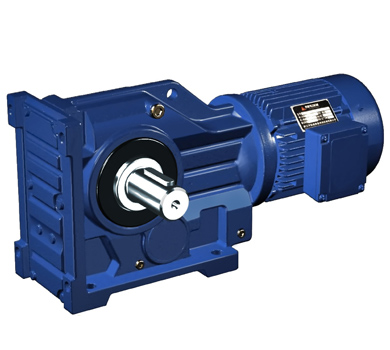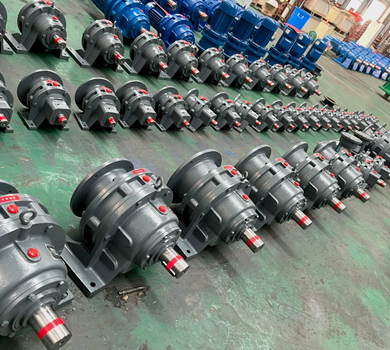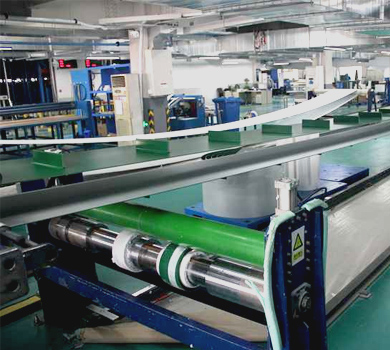Industry Challenges and Pain Points Analysis:
The automated food processing industry, particularly in ham deboning and slicing lines, is a highly specialized and demanding segment of industrial automation. These production lines typically consist of conveyor systems, robotic arms, high-speed cutting units, and precision feeding mechanisms, all of which require accurate and reliable motion control. As consumer demand for consistency, hygiene, and throughput increases, the trend toward fully automated, high-speed deboning and slicing operations is accelerating.
However, the industry currently faces several key challenges. First, the high mechanical stress and repetitive motion required by deboning and slicing mechanisms impose significant demands on the performance of the drive systems. Second, equipment stability is crucial, as any downtime can lead to costly production delays. Third, energy efficiency has become a top priority, especially in light of rising energy costs and global sustainability goals. Finally, the need for compact, modular designs is growing to accommodate modern, space-constrained manufacturing environments.
The Critical Role and Technical Requirements of Gear Reducers:
Gear reducers play a pivotal role in ensuring smooth, controlled, and precise movement in ham deboning and slicing systems. They must deliver high torque density to support heavy-duty cutting and deboning actions, while maintaining exceptional transmission accuracy to guarantee product consistency. Rapid response times are also required to keep pace with high-speed production lines.
Moreover, gear reducers in this industry must operate reliably under challenging environmental conditions, such as high humidity, frequent cleaning, and exposure to food-grade chemicals. Long service life, high resistance to wear, and low maintenance frequency are essential to reduce operational costs and ensure compliance with stringent food safety regulations.
Waimica’s Gear Reducer Solutions:
Waimica has developed a specialized line of gear reducers tailored to the unique demands of automated food processing equipment. Our solutions directly address the key pain points of the industry through advanced engineering and robust design.
- Structural Design Highlights: Our gear reducers feature a compact and modular design, allowing for flexible integration into various system configurations. Support for multiple mounting styles, including flange and shaft mounting, ensures compatibility with diverse equipment layouts.
- Performance Parameters: Waimica reducers offer a torque range of 100 Nm to 5,000 Nm, transmission accuracy of up to 1 arc minute, and a high efficiency of 90% or above. They are equipped with standardized input flanges that ensure seamless coupling with servo and stepping motors.
- Special Operating Conditions Support: Designed for operation in high-temperature environments and under frequent cleaning protocols, our gear reducers meet the requirements of food-grade applications. They are available with IP67 and IP69K protection ratings, ensuring long-term reliability in hygienic settings.
| Parameter | Waimica | Leading Brand A | Leading Brand B |
|---|---|---|---|
| Torque Range (Nm) | 100 – 5,000 | 150 – 4,800 | 120 – 5,200 |
| Backlash | ≤1 arc min | ≤2 arc min | ≤1.5 arc min |
| Efficiency (%) | ≥90 | ≥88 | ≥89 |
| IP Rating | IP67, IP69K | IP67, IP69K | IP67, IP69K |
| Service Life (Operating Hours) | ≥50,000 | ≥45,000 | ≥48,000 |
| Maintenance Interval (Months) | ≥24 | ≥18 | ≥20 |
Typical Application Scenarios and Customer Feedback:
A major European food processing company was looking to modernize its ham deboning and slicing line to meet new throughput targets and improve hygiene standards. The existing gear reducer system was experiencing frequent breakdowns and required excessive maintenance due to its low durability in high-humidity environments.
Waimica’s engineering team conducted a thorough site assessment and identified the core challenges related to torque, precision, and environmental resistance. We selected the Waimica X-Gear series, which offers high torque capacity and an IP69K rating for frequent CIP (Clean-In-Place) operations. Our team provided on-site installation support, ensured seamless integration with the existing control system, and trained the customer's technicians on preventive maintenance practices.
Following implementation, the customer reported a 35% improvement in production uptime, a 20% reduction in energy consumption, and a 40% extension in maintenance intervals. The table below summarizes these improvements:
| Metric | Before Waimica | After Waimica | Improvement |
|---|---|---|---|
| Production Uptime | 72% | 95% | 23% |
| Energy Consumption | 180 kW/h | 144 kW/h | 36 kW/h |
| Maintenance Interval | 12 months | 16.8 months | 4.8 months |
Conclusion and Waimica Brand Value Summary:
Waimica has demonstrated a high level of technical competence and reliability in delivering gear reducer solutions for automated ham deboning and slicing systems. Our products offer a compelling balance of performance, durability, and cost-effectiveness, positioning them as a strong alternative to established international brands. With our strong R&D capabilities and rapid global delivery network, Waimica supports a wide range of custom design and integration needs, tailored to the specific requirements of our customers.
As the food processing industry continues to evolve toward fully automated, high-speed, and environmentally compliant production lines, Waimica is committed to delivering cutting-edge motion control solutions that help our customers achieve their operational and sustainability goals. We remain a trusted partner in the industrial automation landscape, providing "Made in China" solutions with global-grade quality and engineering excellence.







